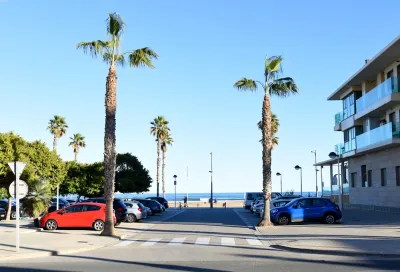The city’s decision to reinstate parking requirements for housing developments will likely slow the recent boom of ‘missing middle housing’ construction.

While other cities are moving to eliminate minimum parking requirements, Miami recently took a step in the other direction, requiring developers to adhere once again to parking minimums and removing city planners’ ability to issue waivers for projects located near transit.
According to Henry Grabar, writing in Slate, the 4-1 vote by the City Commission happened in a “peculiar fashion” and in opposition to the planning board’s 9-2 vote to keep the parking requirement suspension in place: “There was no study, no official rationale, and no sponsor who wanted to take credit.” Now, “Each new Miami apartment will once again be required to come with 1.5 parking stalls, rounded up, whether residents want them or not. The cost of building those spaces, spread across fewer units, will wind up raising rents—if the law doesn’t kill off projects altogether.”
Whatever the reason for the Commission’s decision, Grabar writes, “The decision will likely mark the end of Miami’s boomlet of ‘missing middle’ housing—the small buildings on small lots by small developers that have begun to densify and enliven the city’s core neighborhoods—and provide a cheaper alternative to most new construction.”
“[F]or the smaller players whose projects filled in vacant lots in the city’s core neighborhoods, the risk of waiting a year just to have an idea turned down may simply be too great.”
FULL STORY: How Miami Decided Parking Is More Important Than Housing

National Parks Layoffs Will Cause Communities to Lose Billions
Thousands of essential park workers were laid off this week, just before the busy spring break season.

Retro-silient?: America’s First “Eco-burb,” The Woodlands Turns 50
A master-planned community north of Houston offers lessons on green infrastructure and resilient design, but falls short of its founder’s lofty affordability and walkability goals.

Delivering for America Plan Will Downgrade Mail Service in at Least 49.5 Percent of Zip Codes
Republican and Democrat lawmakers criticize the plan for its disproportionate negative impact on rural communities.

Test News Post 1
This is a summary

Test News Headline 46
Test for the image on the front page.

Balancing Bombs and Butterflies: How the National Guard Protects a Rare Species
The National Guard at Fort Indiantown Gap uses GIS technology and land management strategies to balance military training with conservation efforts, ensuring the survival of the rare eastern regal fritillary butterfly.
Urban Design for Planners 1: Software Tools
This six-course series explores essential urban design concepts using open source software and equips planners with the tools they need to participate fully in the urban design process.
Planning for Universal Design
Learn the tools for implementing Universal Design in planning regulations.
EMC Planning Group, Inc.
Planetizen
Planetizen
Mpact (formerly Rail~Volution)
Great Falls Development Authority, Inc.
HUDs Office of Policy Development and Research
NYU Wagner Graduate School of Public Service





























